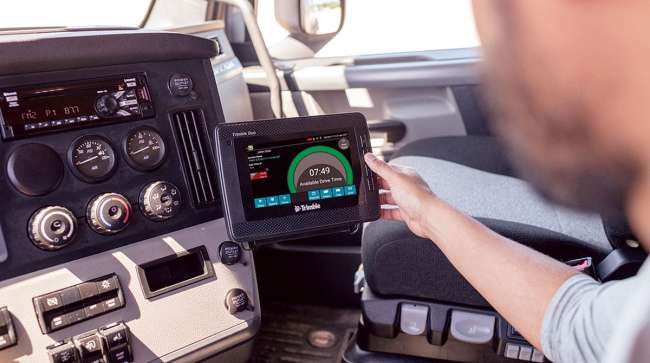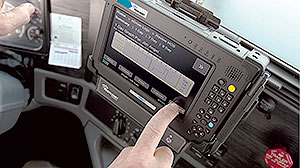Senior Reporter
No 'Soft Enforcement' After AOBRD ELD Exemption Ends Dec. 16

[Stay on top of transportation news: Get TTNews in your inbox.]
Commercial vehicle inspectors will not offer a “soft enforcement” grace period for truckers who have not migrated to electronic logging devices from grandfathered automatic onboard recording devices by Dec. 17, the date that full enforcement of the federal ELD rule takes effect.
Unless a motor carrier operates under a shorthaul rule exemption, all truckers without an ELD onboard, or those who have not converted their AORBDs to an ELD, will face an out-of-service violation after the Dec. 16 deadline.
https://t.co/QPugr2zTli pic.twitter.com/UYeGbuS6A8
— FMCSA (@FMCSA) November 29, 2019
There are no excuses for not having an ELD for truckers who are required to, nor will there be any warnings or exceptions, said Collin Mooney, executive director of the Commercial Vehicle Safety Alliance.
But Mooney said he believes most carriers will be in compliance by the deadline.
“We’re taking a pulse largely from the ELD manufacturers,” Mooney told Transport Topics. “Earlier in the year, they were a little concerned that we were going to have this flood of last-minute conversions. However, the vendors, in working with their clients, believe everybody has either migrated already or will be migrated in time.”
“The unknown is how many folks on the road haven’t done anything — aren’t either running AOBRDs, or haven’t selected an ELD vendor,” Mooney added. “That number has eluded us ever since the rule was first published four years ago.”
According to the North American Standard Out-of-Service Criteria, property-carrying drivers who do not have an ELD by the deadline will be considered without a record of duty status in their possession. Those violators will be declared out of service for 10 hours.
Passenger-carrying drivers without a record of duty status will likewise be placed out of service, but for only eight hours.
Although the Federal Motor Carrier Safety Administration’s ELD mandate phased out paper logbooks when it went into effect in December 2017, the regulation has allowed fleets to continue using AOBRDs for a two-year transition phase.
FMCSA implemented the ELD rule to make it easier and faster to accurately track, manage and share record of duty status information, and to help improve road safety and reduce the number of crashes. An ELD automatically records a driver’s driving time and other hours-of-service data. Hours-of-service rules and regulations were developed to minimize driver fatigue and improve safety. In addition, ELDs monitor a vehicle’s engine data, such as when the engine is running — whether the vehicle is moving, miles driven or duration of engine operation.
“We’ve had a soft enforcement over these last few years on giving drivers the benefit of the doubt regarding whether they operate an AOBRD thinking they are operating an ELD when they’re not,” Mooney said. “I think there’s been some leniency over the past couple of years.”
But there still will be a large number of AOBRDs in compliance.

AOBRD by PeopleNet Communications Corp.
“If they’re operating under shorthaul rules or an exemption, they can still use an AOBRD,” Mooney said. “So they don’t go away.”
Dan Horvath, director of safety policy for American Trucking Associations, said he is confident the trucking industry is largely ready to meet the deadline.
“What I’ve heard from our members and the industry in general, I think a lot of carriers did the switch in the fall, October time frame,” Horvath said. “So if they did have any issues that they encountered with their providers, they were hopefully able to work over those issues in the last few months.
“I have not heard recently of any major issues. I can say there have been intricacies like for yard moves or personal conveyance with several vendors that carriers worked through.”
Horvath said that less than 1% of drivers stopped at FMCSA roadside inspections have recently been cited for not having an AOBRD or ELD.
“I can’t think of any credible excuse for not having an ELD,” Mooney said. “It’s been communicated so widely and talked about at truck stops.”
Want more news? Listen to today's daily briefing:


